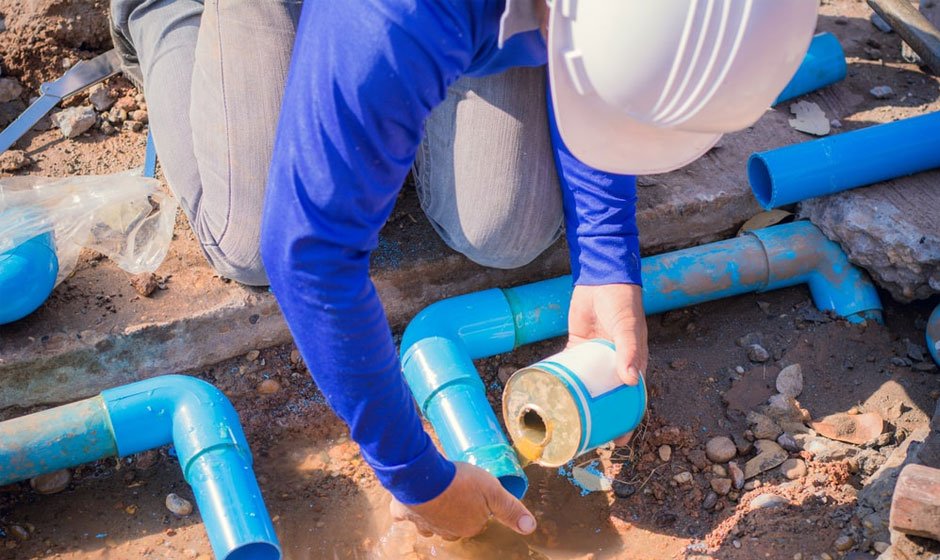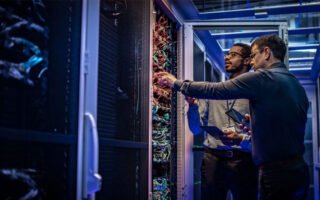Utility services such as water, gas, and sewer are necessary in the day-to-day operations of many commercial businesses. The efficient operation of these systems promotes organizational performance and customer satisfaction. Minor and major problems can interfere with a company’s services, suspend operations, and endanger lives. Here are some common commercial water, gas, and sewer line issues and possible ways commercial plumbers fix them:
Leaks and Breaks
Bursts and cracks in water pipes are a result of corrosion, pressure variation, or ground movement. Corrosion gradually reduces the lifespan of pipes and makes them more susceptible to developing leakages. Pressure variations create stress on the pipes, and this can lead to cracking or, in extreme cases, bursting. Pipes can also be damaged by ground movements such as shifting soils or sinking foundations. Commercial plumbers deal with such problems by using cameras to analyze pipes and diagnose areas that require repair. They may repair or replace corroded pipe sections if possible. If the system’s pressure setting is increased, plumbers will reduce and maintain it at a moderate level to prevent future problems.
Clogged Pipes
Sediment causes pipe clogging because it reduces the pipe’s cross-section diameter. Other materials that can cause blockages include food debris and hair. Grease and oil turn into thick layers inside pipes, causing significant blockages. Large tree roots may penetrate and push their way through pipe systems to create backups and blockages. Plumbers remove clogs with tools like augers or snakes. They also use high-pressure water jets to remove debris or silt from the pipe’s surfaces. For tree root intrusions, plumbers use chemical treatments or pipe relining services.
Gas Leaks
Corroded or damaged pipes may have cracks that allow natural gas to leak out. Defective or damaged joints and couplings can lead to gas leakage. Failure to install the gas appliances correctly also increases leak risks. Construction or ground movement can cause damage, such as breaking or cracking of gas lines. Use different pipeline pig types, including cleaning, inspection, and sealing pigs, are used to maintain pipeline integrity and efficiency in oil and gas operations. Plumbers address these issues by inspecting the lines with the help of tools that can easily identify signs of leaks. They then repair or replace faulty pipes and other fittings that may have worn out or become rusty.
Backflow
Backflow is the reverse flow of contaminated water into the source of clean water. The main causes of backflow include a drop in the water pressure or leakage due to a cross-connection in the system. Problems in the plumbing system, such as a burst pipe or a clogged drain, can also cause backflow. When there is a variation in water pressure, water from industrial applications can mix with clean water.
Contaminated water poses health risks to employees and consumers. It can also contaminate equipment that requires clean water for operation. Backflow may lead to a problem of noncompliance with health and safety standards, leading to fines and shutdowns. To counter backflow, plumbers set up backflow prevention equipment such as checking valves or air gaps so that water only flows in the intended direction.
Sewer Line Leaks
Tree roots invading pipes is a common problem that causes leaks in commercial sewer systems. Old or rusty pipes can also develop cracks and start dripping. Sudden movements of soil or ground can cause misalignment or even breakages underground. Leaking can also be caused by poor installation or use of substandard materials. High water pressure can place excess pressure on the pipe and lead to a leak.
Leaks in sewer lines cause unpleasant smells and shifts in the foundation of the property. Other consequences may involve property flooding and mold growth. Potential health risks develop if sewage infiltrates drinking water supply systems. Plumbing companies can perform pipe relining to restore function, which involves repairing the pipe from the inside without digging it up. In severe cases, pipe replacement or trenchless repair may be required.
Incorrect Installation
If sewer systems are incorrectly sloped, the waste backs up or does not flow properly. Flushing water lines with poor connections may result in leakage, pressure drop, or even contamination of the water. Such problems can lead to high utility bills, destruction of property, and adverse health effects. To solve these problems, plumbers will check for faulty installations and make the necessary recommendations for re-sloping or re-piping services.
Get Help From Commercial Plumbers
Regular inspections and correct installation measures can prevent plumbing complications. A plumber can install new joints, repair damaged pipes, or increase water flow to restore your water, gas, and sewer systems’ functionality. Contact commercial plumbers today to learn more about their repair and maintenance services.



